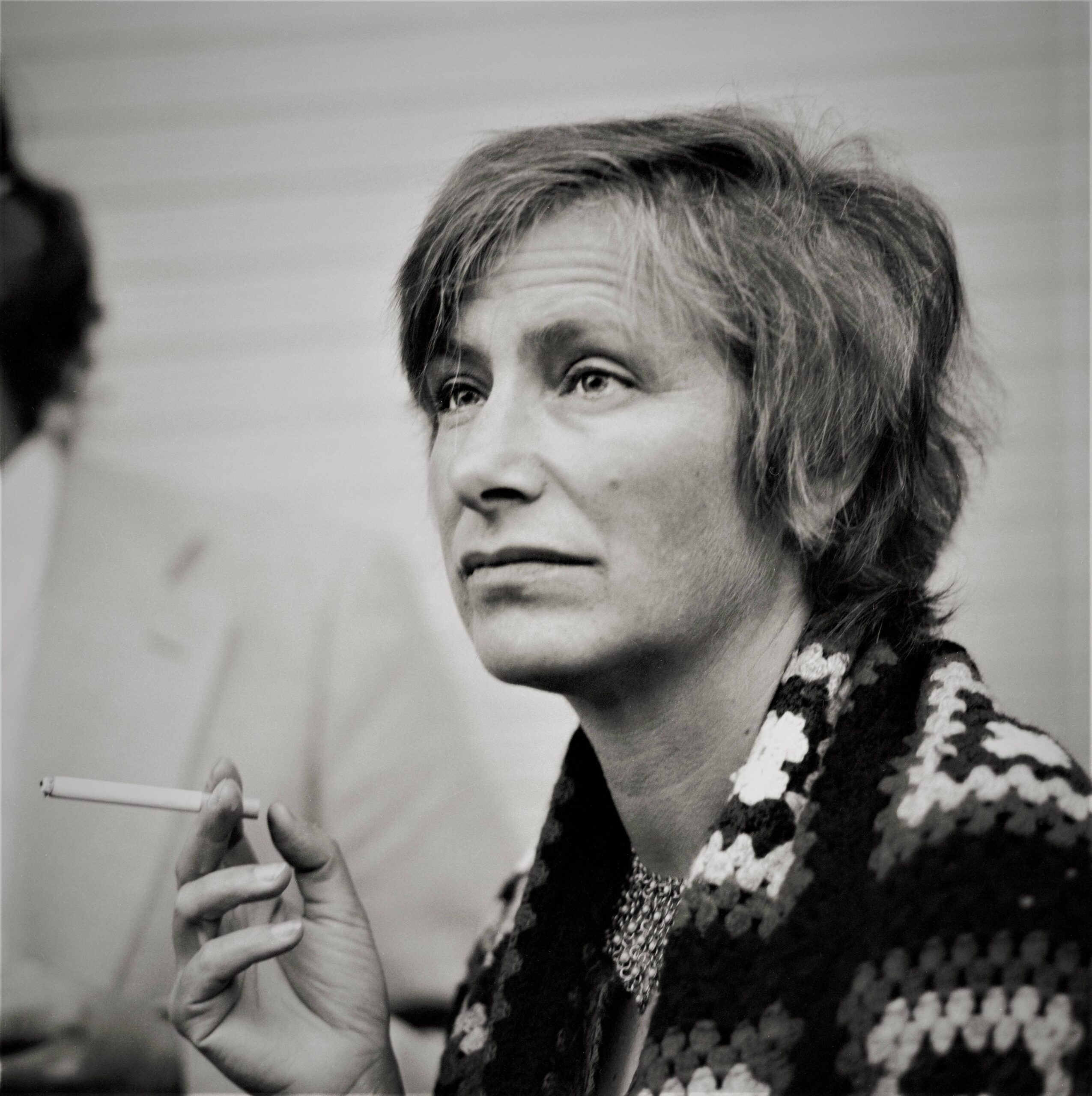By Charles Marsh
It was a joy to lecture on Dorothee Soelle (pronounced homophonically with the name of the French novelist Zola) in the final week of my fall 2021 graduate seminar – and I will surely devote more attention to her life and thought when “Theologies of Resistance and Reconciliation” comes around again (and when, I trust, I will not be sidelined by a ferocious bacterial infection for the first six weeks of the term–thanks again to our postdoctoral fellow, Dr. Guy Aiken, for leading the class with such grace and skill while I was still in the sickbed).
The lecture on Soelle might be called a “Prolegomena to any Future Study of Dr. Dorothee Soelle” – I barely scratched the surface of her richly-layered imagination. I brought to class all of her books available in English, including her early work on the Death of God (which I found in a small bookshop in England and which cost a fortune) and a few untranslated ones included her slim, intriguing New Yorker Tagebuch (written in 1985 while teaching at Union Theological Seminary, where from 1975 to 1987, she spent a semester each year) and which I’d love to translate. I opened Zoom for class with 20 pages of notes and got through five pages in seventy minutes. Sic transit gloria mundi, my grandmother used to sigh.
Still, I hope I began to build a case for Soelle’s prominence in the canon of modern Christian thought and illuminate the contours her originality. What drew Soelle to theology was the creative venture “to think God”; she was neither professionally anchored in the church nor in what she termed “the intellectual adventure of post-Enlightenment theology”. What drew her was mystical element, a way of pursuing theological life that is “less dogmatic, less cerebral and encased in words…and less centered on men”– the mystical was the call, she said, “that would not me go.”
Soelle wrote in her great book, The Silent Cry, “I can simply say that what I want to live, understand, and make known is the love for God…God loves, protects, renews, and saves us. One rarely hears that this process can be truly experienced only when such love, like every genuine love, is mutual. That humans love, protect, renew, and save God sounds to most people like megalomania or even madness. But the madness of this love is exactly what mystics live on.” I’m decidedly no mystic, but I have found that reading Soelle through the years has helped me know my own need to live on that madness as well.
Walter Bruegemann summed up Dorothee Soelle’s brilliant career: “A tough Christian, she is a rare presence in world Christianity because she embodies the best of classical theology, a clear grasp of our broad social crisis, a lyrical quality of expression and a determination to keep faith linked to political reality.”
I hope you’ll dip into Soelle. You might start with this singular page below.
Listen to the entire lecture through its resource page here.
To find a listing of all our Occasional Lectures, click here.

